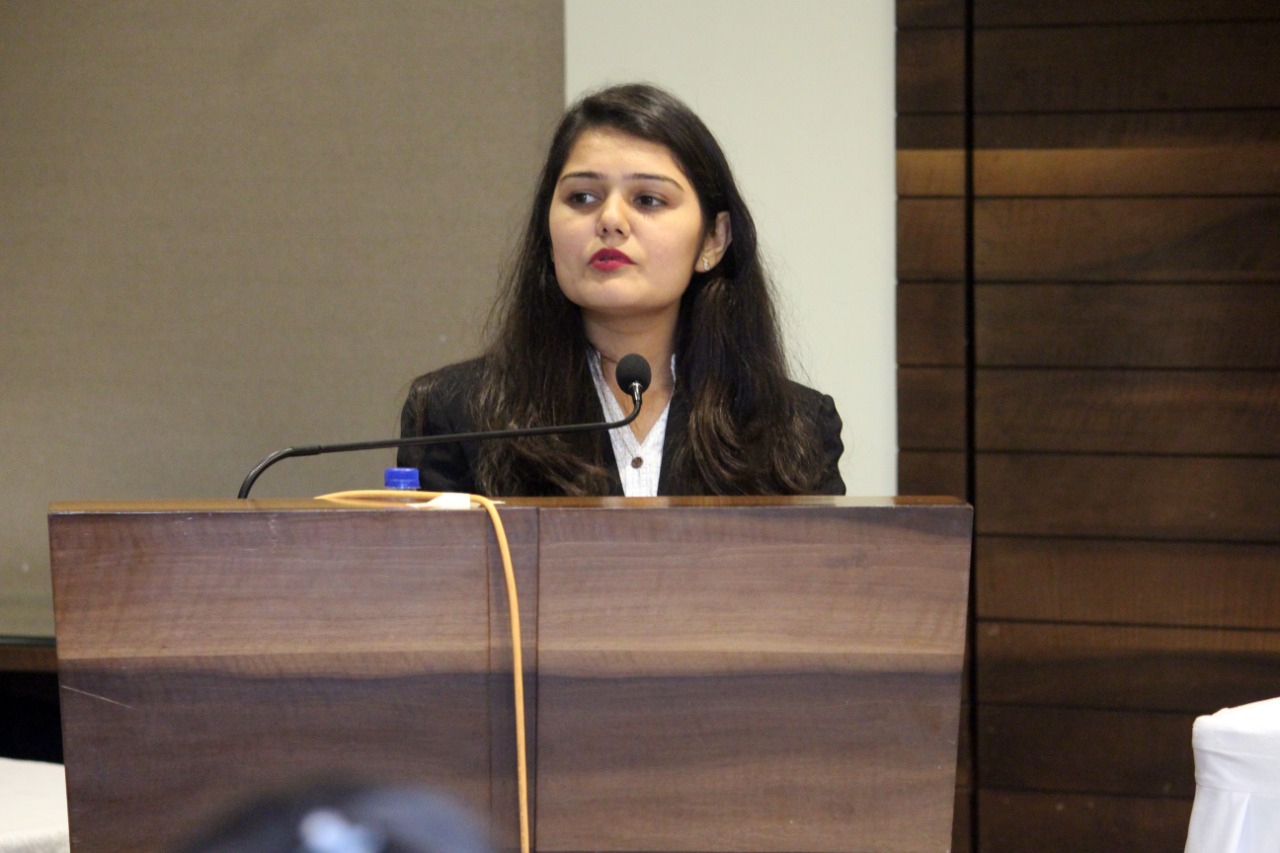An Alternative Investment Funds (AIFs) in India are governed by the Securities and Exchange Board of India (Alternative Investment Regulations), 2012 (AIF Regulations) and regulated by the Securities and Exchange Board of India (SEBI). The AIF Regulations regulate the registration, operation and winding up of the AIFs.
The SEBI (Alternative Investment Funds) Regulations, 2012 (AIF Regulations) also apply to AIFs in the International Financial Services Centers i.e. IFSC.
Under the Special Economic Zones Act of 2005, the central Government established a framework for the establishment of an IFSC. The IFSC was created to allow financial service Companies to offer foreign currency financial services and products to their consumer (i.e. non-INR currencies).
For the purpose of India’s exchange control regulations, “units” and “entities” in an IFSC are considered as “person resident outside India.”
In Ghandinagar, Gujarat International Fin-Tec City (GIFT City) is being built as worldwide financial and IT services hub, similar to globally benchmarked financial centers. It was designated as a Special Economic Zone (“SEZ”) and is India’s only certified IFSC. Because of its unique position, the IFSC is a desirable jurisdiction for pooling and managing global money.
1. Registration as Alternative Investment Funds (AIFs) for operating in IFSC: For registration as Alternative Investment Funds (AIFs) for operating in IFSC, fund needs to be established or incorporated in IFSC in the form of a trust or a Company or a limited liability partnership or a body corporate, can seek registration under the provisions of SEBI (Alternative Investment Funds) Regulations, 2012 under the below mentioned categories.
2. What are the various categories of an AIF?
- Category I AIF: This category includes AIFs which invests in start-ups, early stage venture capital projects, social venture, small and medium sized enterprises (“SME”), infrastructure projects, or other sectors which the government or regulators consider as socially or economically desirable. Category I AIFs include venture capital funds (including angel funds), SME funds, social venture funds, infrastructure funds, and special situation funds.
- Category II AIF: This category includes AIFs which does not fall in Category I AIF and Category III AIF. Category II AIFs include private equity funds (PE funds) or debt funds, for which no specific incentives or concessions are given by the government or any other regulator.
- Category III AIF: This category includes AIFs which employ different trading strategies like arbitrage, margin trading, and derivative trading. This category can make investments in both unlisted and listed derivatives through leverage as per the AIF Regulations. Category III AIFs include hedge funds or funds which trade with a view to make short term returns, etc., for which no specific incentives or concessions are given by the government or any other regulator.

3. Eligible Investors for AIF in IFSC.
In order to make an investment in an Alternative Investment Fund or a mutual fund operating in IFSC, the investors shall be:
- a person resident outside India;
- a non-resident Indian ;
- institutional investor resident in India who eligible under FEMA to invest fund offshore, to the extent of outward investment permitted;
- person resident in India having a net worth of at least US Dollar one million during the preceding financial year who is eligible under FEMA to invest funds offshore, to the extent allowed in the Liberalized remittance scheme of Reserve Bank of India:
- Units of other AIFs;
Any AIF or Mutual Fund operating in IFSC shall accept money from eligible investors only in foreign currency.
4. Permissible Investments by the IFSC AIF
i. Any alternative investment fund or mutual fund operating in IFSC shall be permitted to invest in the following:
ii. Securities which are listed in IFSC;
iii. Securities issued by Companies incorporated in IFSC;
iv. Securities issued by Companies belonging to foreign jurisdiction.
Now, such AIFs may invest in India through the Foreign Venture Capital Investor or Foreign Direct Investment (FDI) route also, in accordance with applicable FDI policy/guidelines issued by government of India and RBI in this regard.
5. What is open ended and close ended AIF?
AIF Regulations does not provide definition for open ended and close ended AIF. However, as per the general understanding, open-ended AIF can be understood as the scheme that offer new units to the investors on a continuous basis while, closed-ended AIF are the mutual funds, which offer new units to investors for a limited period only.
- The schemes of a Category I & II AIF are required to be close ended and shall have a minimum tenure of 3 (three) years and can be extended for period of 2 years subject to approval of 2/3 unit holders by value of their investment.
- The schemes of a Category III AIF may be open or close ended.
- Close ended can be extended for period of 2 years subject to approval of 2/3 unit holders by value of their investment.
6. Minimum Corpus requirement for each scheme of the AIF.
Each scheme of the AIF shall have Corpus of at least USD 3,000,000 (Three Million). For Angel fund shall have a Corpus of at least USD 750,000 (Seven Hundred and fifty thousand.)
7. Minimum Investment by an investor in AIF
- The AIF shall accept from an Investor, an Investment of value not less than USD 1,50,000 (One hundred and fifty thousand).
- The AIF shall accept from an employees or directors of the AIF or employees or directors of the Manager, the minimum value of investment shall be USD 40,000 (Forty Thousand)
8. Continuing interest of Manager or sponsor (Not as waiver of Management fees)
- Category I & II AIF: Manager or Sponsor shall have a Continuing interest in the AIF of not less than, 2.5% of Corpus or USD 7,50,000 (Seven hundred and Fifty thousand) whichever is less.
- Category III AIF: not less than, 5% of Corpus or USD 1,500,000 whichever is less.
9. Investment Conditions
- Category I & II AIF: Investment into one investee Company Shall not be more than 25 % of the Corpus.
- Category III AIF: Investment into one investee Company Shall not be more than 10% of the Corpus.
10. Sponsors and Managers of the AIF
A sponsor or Manager of an Existing AIF in India may act as a Sponsor / Manager of an AIF set up in the IFSC by:
- Setting up a branch in the IFSC or;
- Incorporating a Company or Limited Liability partnership in the IFSC.
- Sponsor or Manager to be set up in IFSC shall need to incorporate a Company or Limited Liability partnership in the IFSC.
11. Custodian
Sponsor or Manager of an AIF (Category I and II) shall appoint a custodian registered with the Board for Safekeeping of securities if the corpus of the AIF is more than USD Seventy million. It will be mandatory for Category III AIF to appoint a Custodian.
12. Borrow funds:
An AIF in IFSC may borrow funds or engage in leveraging activities, subject to the following conditions:
1. The maximum leverage by the AIF, along with the methodology for calculation of leverage, shall be disclosed in the placement memorandum;
2. The leverage shall be exercised subject to consent of the investors;
3. The AIF employing leverage shall have a comprehensive risk management framework appropriate to the size, complexity and risk profile of the fund.
13. Co-invest in a portfolio company
Co-invest in a portfolio company through a segregated portfolio by issuing a separate class of units and shall ensure that:
- The investments by such segregated portfolios shall, in no circumstance, be on terms more favourable than those offered to the common portfolio of the AIF; and
- Appropriate disclosures have been made in the placement memorandum regarding creation of segregated portfolio; and invest in an AIF registered with SEBI in India, alongside other permissible investments.





